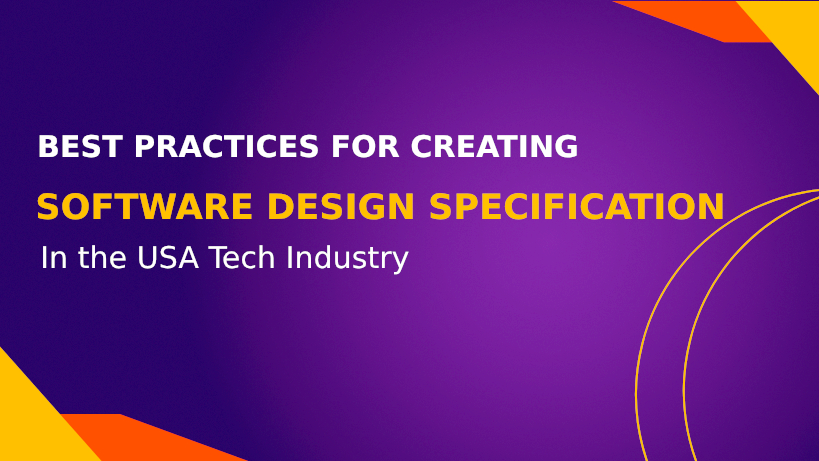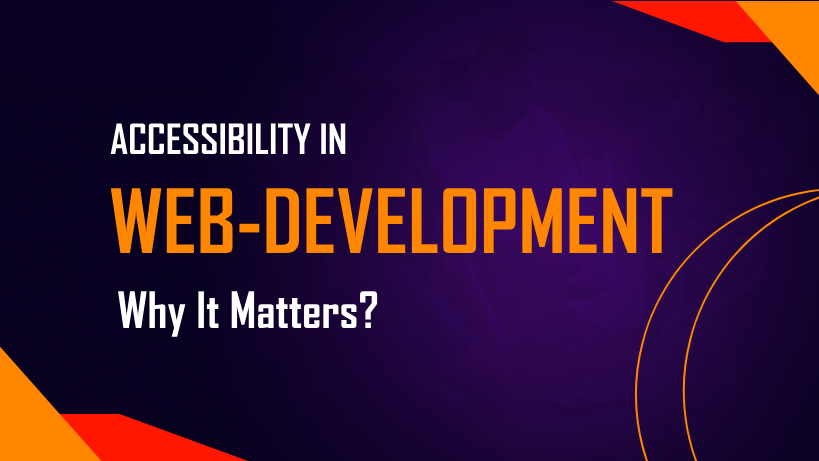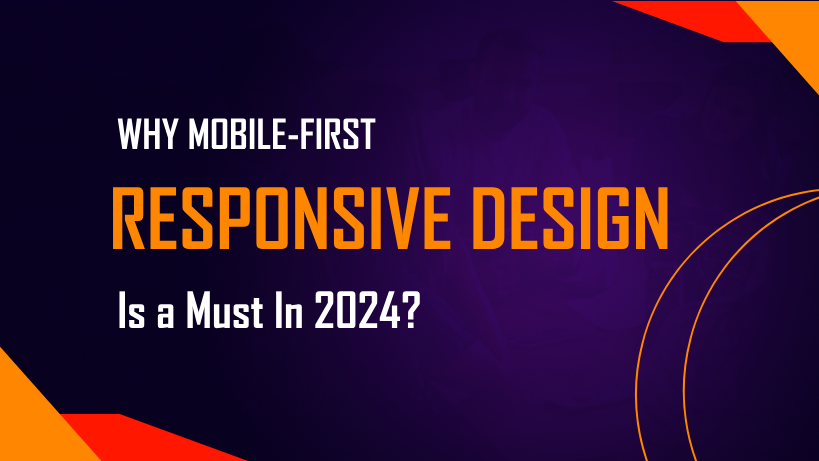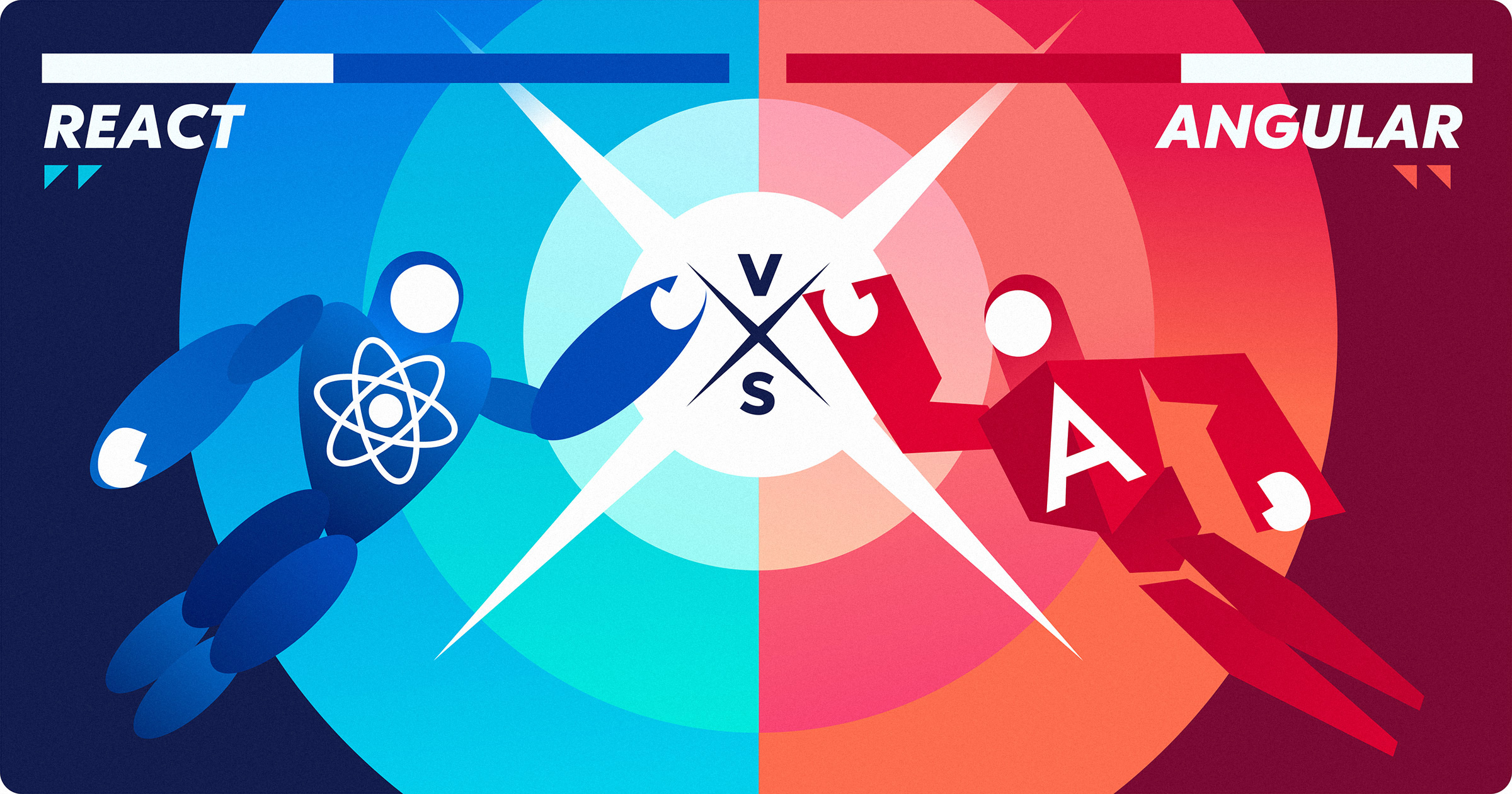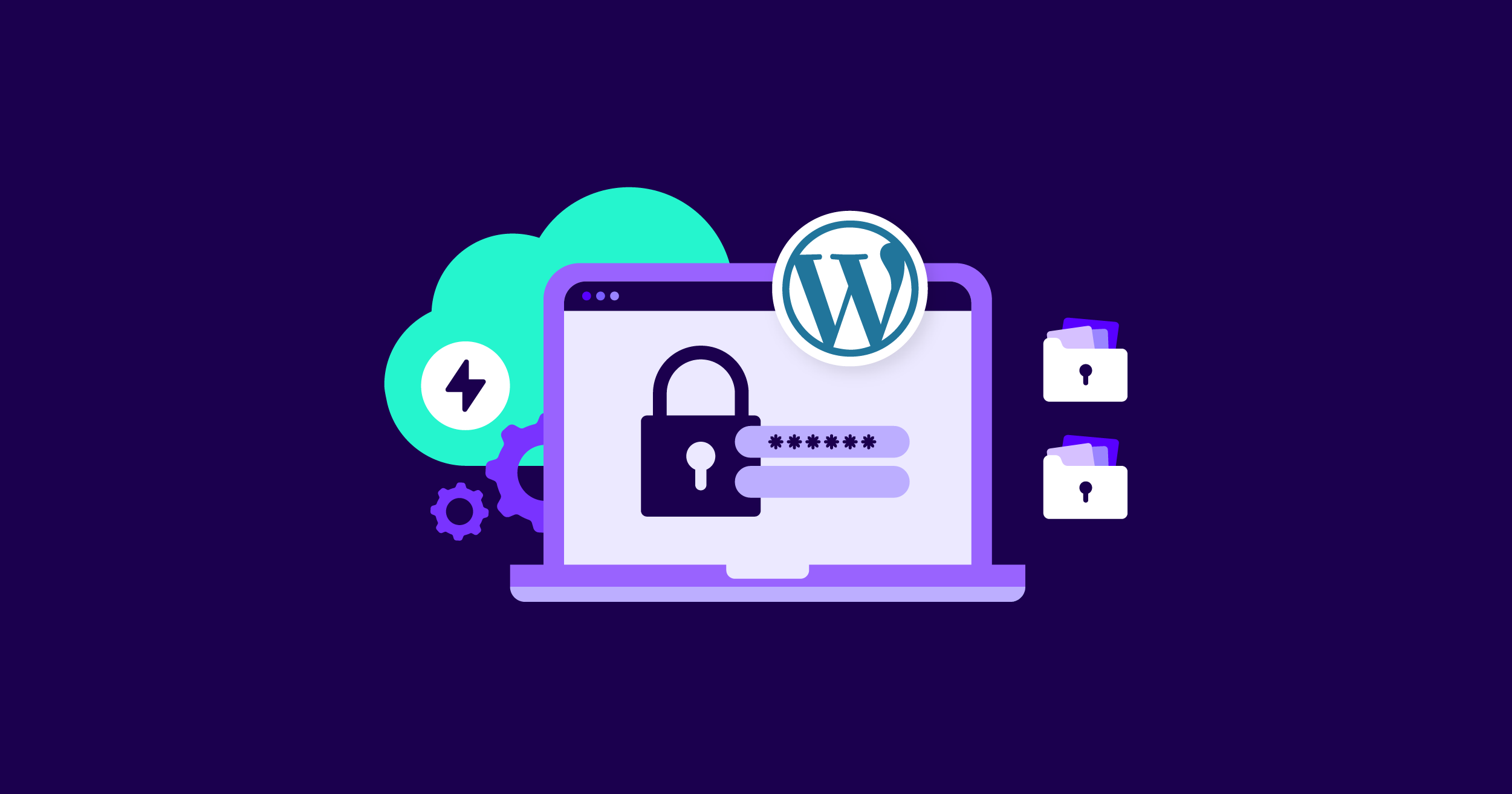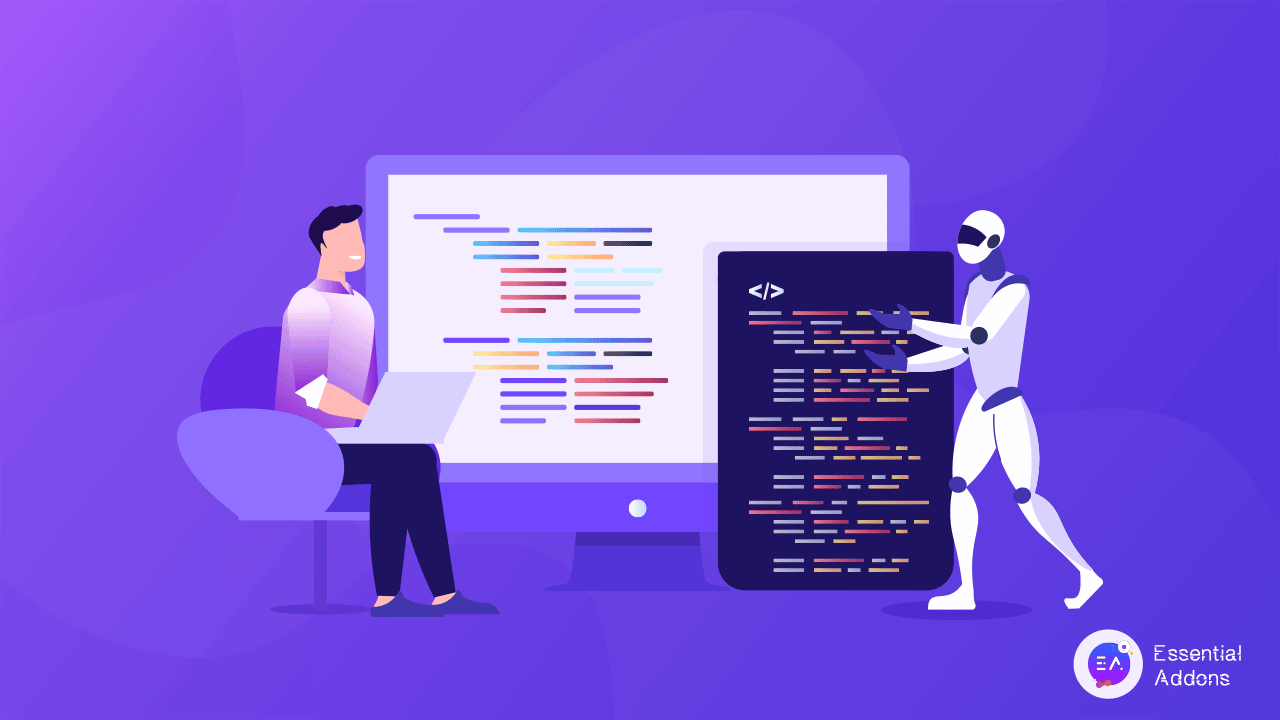
The digital landscape is constantly evolving, and Artificial Intelligence (AI) is poised to revolutionize web development and design. AI empowers computers to tackle tasks traditionally requiring human intellect, like problem-solving and decision-making. Machine learning and deep learning, its core components, involve algorithms that learn from data sets and adapt accordingly.
AI's impact goes far deeper than automation tools. It can streamline website creation, enhance user experience, build mobile-friendly applications, optimize performance, and much more. For instance, Natural Language Processing (NLP) allows computers to understand human language, leading to improved Search Engine Optimization (SEO). Additionally, Augmented Reality (AR) and Virtual Reality (VR) are gaining traction in web design due to their immersive capabilities.
How Artificial Intelligence impacts website design and development?
Here are some ways Artificial Intelligence are used in Web Development:
Code generation, optimization, and completion
Traditionally, tasks like code generation, optimization, and completion were the exclusive domain of human programmers. However, the evolution of AI tools has transformed web development, making it faster and more efficient.
AI can now generate code based on natural language descriptions of its function. For instance, OpenAI's Codex can create code snippets in response to a programmer's prompt. While these snippets may require human review and refinement, they offer a significant head start. Additionally, AI can suggest code improvements to enhance the speed and efficiency of websites and applications.
Automated code generation offers a significant time saving advantage. Developers can leverage this freed-up time to tackle more complex tasks. Moreover, advanced AI tools can accelerate the deployment of valuable website features like voice search and user-friendly navigation systems.
UI/UX design creation and optimization
AI's influence extends beyond streamlining web development. It's also transforming web design with innovative solutions. Numerous applications now exist that can create logos and other reusable visual assets for websites. These tools are perfect for startups needing high-quality visual content without breaking the bank.
The innovation doesn't stop there. Platforms like Murf AI utilize AI to generate website templates, while Uizard leverages AI to seamlessly convert user sketches into polished designs. These tools empower web designers to create engaging visual experiences that drive user interaction.
Furthermore, AI can analyze user behavior, revealing which UI/UX elements resonate best with visitors. This translates to AI-powered tools that help designers create user-friendly interfaces and uncover user preferences with greater efficiency and cost-effectiveness.
Automated testing and predictive analytics
AI's influence in web development extends beyond design and development, now playing a crucial role in quality assurance (QA) and testing. While automated testing has been an established use case for AI, its evolving capabilities are pushing boundaries.
AI tools can now analyze data and predict potential issues that might arise during deployment. This proactive approach empowers teams to address even the subtlest risks and nuances before they snowball into major problems. This translates to a more robust and secure user experience from the get-go.
Deployment automation and version control
For intricate web development projects, AI seamlessly integrates with the Continuous Integration/Continuous Deployment (CI/CD) process. CI/CD automates code deployment, accelerating development cycles and fostering consistency.
Within the DevOps environment, AI can analyze code modifications and recommend optimal version control strategies. This ensures changes are meticulously tracked and managed, minimizing the risk of errors or inconsistencies.
Bug-free coding and automated quality assurance
Deep learning empowers AI-powered web development software to assist programmers in boosting code efficiency. These tools identify bugs and promote code clarity, leading to more robust and maintainable applications. Additionally, automated testing solutions powered by AI are transforming the QA landscape. While manual testing remains crucial for specific scenarios, AI tools significantly streamline the process.
This translates to cost savings for project owners. According to Statista, budgets allocated towards QA and testing have been steadily decreasing in recent years. AI development is a key driver of this trend, enabling teams to achieve higher quality standards with fewer resources.
Streamlined website development process
In the modern digital landscape, artificial intelligence (AI) is revolutionizing web development. AI takes over tedious and manual tasks, freeing up developers' time and energy to focus on the bigger picture – crafting innovative and strategic web experiences.
By automating time-consuming chores and guiding decisions with data-driven insights, AI streamlines the entire development process. This is especially beneficial for new web developers. AI tools can expedite their learning curve by automating repetitive tasks and providing valuable data that informs decision-making. As a result, the development process becomes more seamless and efficient, allowing developers of all experience levels to create high-quality websites.
Limitations of AI and Machine Learning in Web Development
While the advantages of machine learning for businesses and web development are undeniable, it's important to acknowledge its limitations. Here are some key areas to consider:
Limited decision-making capability
While artificial intelligence (AI) is a revolutionary force in web development, it's important to remember it's a tool, not a one-man show. AI thrives on data, and its capabilities are restricted by the information it's trained on. This can make it challenging to convey complex situations or subtle cues to AI systems.
Despite significant advancements, AI currently lacks the broader, human-like ability to think creatively and make independent decisions. Machine learning algorithms rely heavily on the data they're trained with, limiting their ability to handle intricate tasks without human guidance.
In essence, AI development tools are best seen as assistants, not replacements, for web developers. By leveraging AI's strengths in automation and data analysis, developers can free up time for more strategic thinking. This human-AI collaboration allows for data-driven decisions that enhance the entire development process.
The risk of biased data.
Another significant risk and limitation of using AI for web development lies in the potential for bias within the training data. Biased data can lead AI tools to make unethical or inaccurate decisions. Fortunately, human oversight helps mitigate this risk. Developers can actively monitor AI outputs and intervene when bias appears to be influencing results.
Model size limitations
While AI offers a wealth of benefits for web development, it's crucial to remember that not all AI models are created equal. A key factor to consider is how well the model caters to the specific needs of your end users.
For instance, some AI models can be quite large and resource-intensive. While powerful for specific tasks, these models might not translate well to mobile devices with limited processing power. A sluggish user experience on mobile can significantly impact website engagement.
Therefore, choosing the right AI tool involves carefully considering its capabilities and how it aligns with your project's requirements, particularly user experience across different devices.
Considering the mentioned issues, many professional web developers claim artificial intelligence and machine learning can’t take care of the entire process of web development. AI algorithms are unable to consider the specific needs of each digital project. On the other hand, there is no doubt that the evolution of artificial intelligence continues revolutionizing the web development industry.
Future of Web Development with AI: Will AI Replace Web Developers?
The rise of artificial intelligence (AI) has sparked anxieties about job displacement, with web developers often cited as being at risk. According to Business Insider, coders, testers, and programmers could be some of the first professions affected by AI automation.
However, a more nuanced perspective emerges when considering AI's potential to augment rather than replace human developers. Business Insider also highlights how AI can create new opportunities in web development. AI tools can streamline tasks, enabling developers to work faster and more efficiently. These tools can even empower beginners by assisting them with code writing, providing a valuable entry point into the field and aiding in skill development.
For web startup owners, AI implementation isn't a silver bullet. Success still relies on human expertise. SEO specialists remain crucial for boosting website visibility, while engaging content is key for user interaction. Talented web designers are essential for crafting an eye-catching experience that grabs attention.
Currently, replacing web developers with AI is simply not feasible. While AI offers incredible capabilities, it lacks the creativity and ingenuity of human experts. No existing AI tool can manage the entire web development process independently.
The future lies in collaboration. AI automation might reduce some tech jobs, but the pace will likely be slower than anticipated. Instead, AI will empower developers with powerful tools, leading to a faster, more cost-effective, and scalable development process.
Conclusion
In conclusion, AI is transforming web development from a task-oriented process to a strategic one. While AI excels at automating repetitive tasks, analyzing data, and personalizing user experiences, it currently lacks the creative spark to innovate entirely on its own. The future lies in collaboration. By leveraging AI's strengths as a powerful assistant, developers can free up time for strategic thinking and focus on crafting exceptional user experiences. This human-AI partnership unlocks the true potential of AI in web development, paving the way for a future of efficient, data-driven, and user-centric web experiences.

